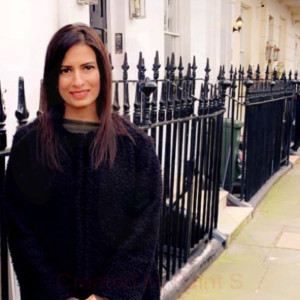Chapters
Most people contend that communication is a complex and powerful process. It is relevant not only to our personal and professional life but to function in society. Humans communicate in different ways, in different languages and through a variety of means. Communication starts from one's earliest days:
- when laying down, infants arch their backs to signal they want to be picked up
- babies quickly master actions that elicit desired reactions - crying, cooing, dropping their toys
- children develop cultural awareness as they learn their language - deference to elders, respect for authority and so on
- teenagers communicate their individuality through their clothing and hairstyles, their accessories and cultural choices (music, films, books, social media and so on)
Throughout these stages of development, we internalise our cultural narrative. We learn what's acceptable from a cultural perspective and develop our identity to meet or challenge our cultural standards. We learn discourse - we talk differently with our friends than we do with the adults in our lives. And we develop the power to influence other people's actions through persuasive speech.
The Communication and Culture A-Level examines these aspects of the human experience, starting with students' own perspectives. It then delivers a broader look at how everyday activities bear the cultural stamp. The lens is then pulled yet further back to engage with different forms of communication.
If you’re currently looking at which A-Levels might spark your interest, you may not know exactly what the Communication and Culture A-Level entails. You might not consider it as an option. You probably haven’t studied it at GCSE and you may not have even realised this relatively new subject is available to you.
So let's give you a run-through of what A-Level Communication and Culture is all about. We'll give you an idea of what the subject addresses, how the curriculum is structured and what's expected of you in that course. That way, you can make an informed decision about whether it is right for you.

What is Communication and Culture?
In some cultures, making eye contact, dressing provocatively or outrageously and touching people - even casually, are considered violations of the cultural norms. Should you, an average Brit, practise these behaviours while there, you'll likely be forgiven because you're an outsider. Things wouldn't go so well for someone native to the culture where these practices are offensive. That person would, in effect, communicate disdain for their culture and disrespect for their fellow countrymen.

In the UK and elsewhere in the western world, we tend to celebrate that brand of individuality. It communicates that our culture is open and accepting. That degree of tolerance and forgiveness is projected onto the world stage as representative of Great Britain. Androgynous David Bowie, flamboyant Freddie Mercury and nihilistic Sid Vicious, each one a revered British cultural export still today, prove that point.
This sets up quite a conundrum. People the world over correctly interpret these messages of acceptance and tolerance. They want to live in such a society too. However, they soon find British society is far more orderly - and, perhaps, far less tolerant than those broadcast images led them to believe.
Anger and disillusionment ensue. They might have been ready to assimilate as soon as they arrived. However, in hardly any time at all, they openly (defiantly?) embrace their homeland's cultural elements - clothing, food, music and religion. Thus, they communicate their rejection of British cultural norms.
These are some of the issues explored in the Communication and Culture A-Level curriculum. Put in simple terms, the course is about communication and how and why it works. You will examine group behaviour, body language, spoken language, identity, and how technology affects communication.
The A-Level delves into topics of culture, context, representation, value, identity, power and code. The subject includes aspects you might expect in Psychology A-Levels. It's a suitable companion course for Sociology and Media Studies A-Levels. You may find it useful to study Communication and Culture alongside any of these if they sound interesting to you.
This A-Level is targeted to students who are considering careers that require excellent communication skills. Future public speakers, teachers and aspiring politicians would all find value in this course. You might also consider it if you struggle with communication and wish to develop your abilities.
How Popular is A-Level Communication And Culture?
An internet search could answer this question for you. Our results yielded only a couple of hits. One was a years-old Telegraph article delivering A-Level results statistics. It only addressed Communication Studies indirectly. Even finding this A-Level's past papers was difficult. It was a stroke of luck that we happened on the Assessment and Qualifications Alliance (AQA) Communication and Culture Specification paper.
Most telling was a Student Room thread. The student asked if anyone else was sitting this A-Level. If so, could they help a bit? Apparently, that student's teacher wasn't very forthcoming. The Student Room's answers were equally sparse.
“Communication studies suffered the biggest decline [in entries], with entries plummeting by almost 17 per cent to 1,767.” The Telegraph
Communication and Culture is currently not a very popular subject. The Telegraph further reported that this is perhaps due to its reputation as a ‘soft’ subject that lacks academic credibility. The type that students select to get an easy grade on. Overall, that article's tone dismisses this A-Level as one of that students should bypass. We contend students should think differently about Communication and Culture.
Choosing a subject other students reject would give you the chance to stand out from the crowd. That's particularly true when it comes to UCAS selections and in the job market. Also, if you are interested in this A-Level, think of how it will be useful to your career or your education. Don’t let its lack of popularity put you off. If it’s right for you, that’s all that matters. Besides, if you pass it up based on others' opinions of it, you've effectively succumbed to strangers' powers of persuasion.

Overview of the Communication and Culture Curriculum
How much of you is you? How much are you a product of cultural influence? If you grew up speaking only English, British culture had a sizeable impact on your personal development. Conversely, if you enjoy a wide array of cuisines and friendships with people from other lands, you may consider yourself more multicultural.
Communication and Culture is a relatively new subject in the A-Level course catalogue. Until its debut in 2014, there were no properly organised cultural studies. Instead, culture was explored piecemeal. Philosophy, psychology and sociology courses all touched on culture but never in relation to the self. Culture was always treated as an external phenomenon.
The Communication and Culture A-Level took the place of Communication Studies in time for the 2014 exam season. It challenges students to examine their personal experiences in a cultural context. This course then expands to consider current cultural practices and their impact on the greater society and the world. You'll study cultural phenomena such as feminism and postmodernism to understand their underlying causes and driving factors. Here's how the curriculum breaks these topics down.
Advanced Subsidiary (AS) Level
How do you experience culture? That is the focus of your initial forays into this subject. You'll take a deep dive into cultural codes; the conventions and expectations of your native culture. You'll also look at how you consume culture: the music you listen to, the shows you watch and the types of films that send you rushing to the cinema.
These study modules' main focus is understanding how you operate within your culture. And, to a lesser extent, how your culture influences and shapes you and your worldview. To prove your mastery of these concepts, you'll sit exams at the end of Year 11. You'll compose two readings and a presentation that demonstrate your understanding of cultural concepts and individual practices within a cultural context.
Advanced Level
Now, things get interesting. The focus is off of you and how you operate within your cultural norms. This year, you'll learn how culturally suitable 'products' are made and consumed. You'll learn all about critical theories like poststructuralism, postmodernism and other important 'ism's that shape contemporary culture. The theme for these study units is power - of ideology, discourse and narrative.
How are you supposed to prepare for that? Your Year 12 exam is two-pronged. You'll first explore how your personal social identity developed. You'll also detail the ways you communicate your identity - your style choices, the music you like and the foods you eat. The second half calls for you to examine a specific cultural activity. You might choose a trip to a museum, having a meal out or going to a concert.
Throughout these study modules, you'll undertake substantial research on your own. Remember that you'll move beyond your personal cultural preferences to experience other aspects of culture you don't yet know. For instance, you might research how people in other parts of the UK talk. As we have more than 30 regional dialects, you're bound to come up with some interesting differences between those expressions and the ones you use.

Is Communication and Culture a Useful A-Level?
By now, you may be wondering what use you might have for this A-Level. On the professional level, it’s particularly applicable to careers within public relations, marketing, advertising and journalism fields. If you aspire to a life of public service, maybe as a social worker or even a politician - local or national, this is the A-Level for you. Indeed, many students who choose the Politics A-Level also study Communication and Culture.
Continuing on with the career theme, this A-Level helps you develop a number of transferable skills. This course calls for you to analyse and think critically about a number of topics. You'll develop presentation and interpretative skills. As you progress through the course, you'll learn how to communicate effectively, which is essential in any career that you choose to pursue.
Understanding the importance of culture and how culture influences society is invaluable. Let's say you choose to work and live abroad. You may not have direct knowledge of the culture you're immersed in. However, you will know how to pick up on 'Small C' cultural elements.
These aren't the glaring cultural markers like language, food and which holidays are celebrated. Those are considered Big C culture. Small C covers things like body language and other non-verbal cues. Cultural norms - how to behave in that culture and which actions would be unacceptable. Attitudes towards marriage and parenthood, the work ethic and the spirit of cooperation are all Small C cultural markers.
People native to a culture accept their cultural markers, Big and Small, without giving them much thought, if any. It's a lot like native English speakers who have little understanding of their language's grammar. It just is, a'right?
Your Communication and Culture A-Level enriches your understanding of the human experience by exploring what others take for granted. More importantly, it helps you carve out your place as a member of that culture; an observer and upholder of every C, Big and Small. That sense of belonging serves both as a tether to your 'tribe' and the foundation you'll build the rest of your life on.
Finally, Communication and Culture enlightens you about who you are. You'll see the significance of such simple acts as choosing coffee (modern, trendy, rebellious) over tea (traditional, norm-keeping). You'll recognise that, by wearing jeans and a knit jumper (durable, reliable) instead of fast fashion (exploitative, wasteful), you're making a statement about your personal values. You'll even be able to spot when you're communicating things you don't want other people to know - maybe that you're stressed or angry.
Hopefully, this blog post has given you a better idea of what Communication and Culture is all about. It may not be a very well-known or popular A-Level but it is an interesting one. Poor communication is at the root of many issues in the world. Gaining an understanding of how people communicate is an eye-opening, enriching experience. It will undoubtedly serve you well throughout your whole life.















Interesting article.The decline in courses that investigate culture through communications is sad. I used to teach a Communications Studies A Level in the 1980’s, and it could be – at its best – intellectually rigorous and geneinely creative. I still believe that understanding mass communication is vital to understanding our society, and really does equip you to withstand at least some of the extraordinary pressures of today’s communications landscape.
IT USED TO BE PART COURSEOWRK (40%?) AND PART EXAM – IT WOULD BE USEFUL IF THT WERE MENTIONED HERE – IF STILL APPLICABLE